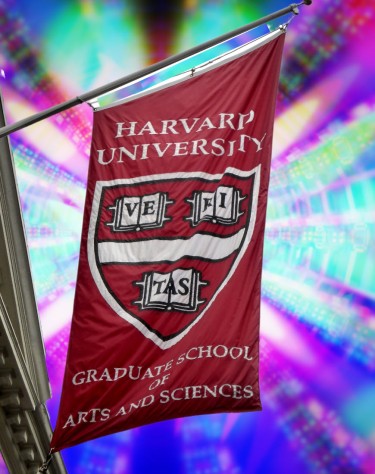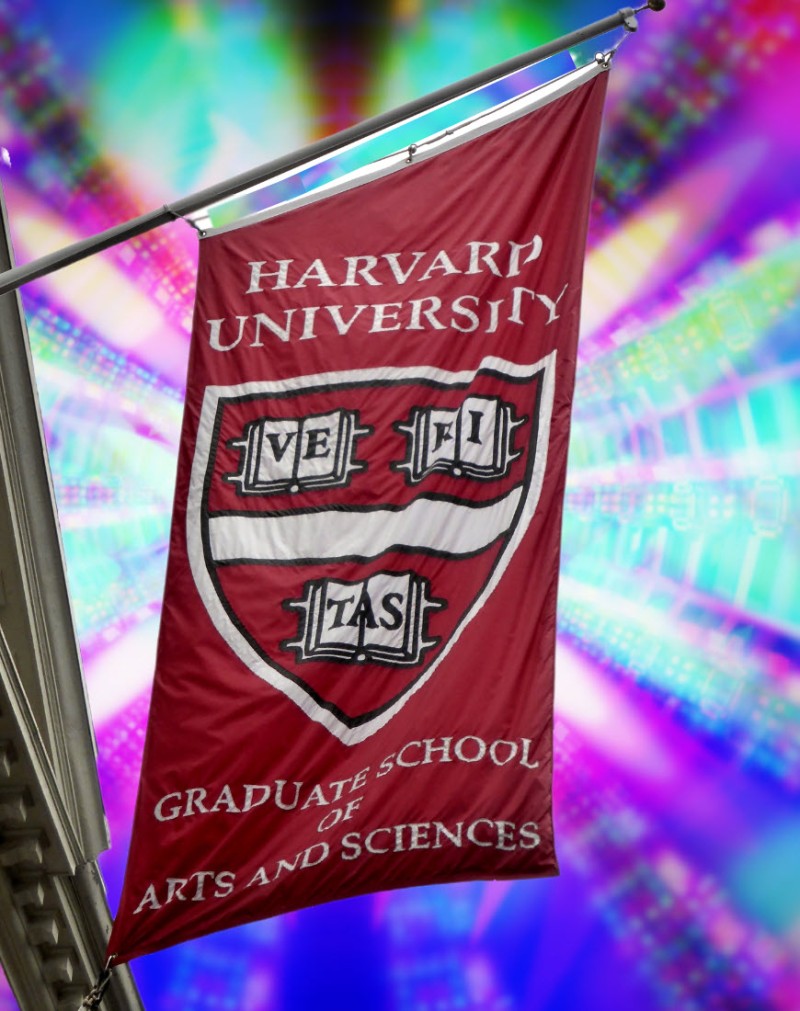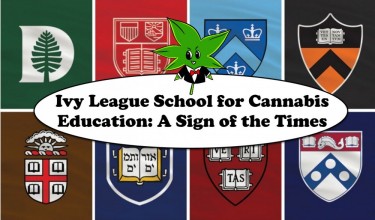
You know what they say about how you can tell someone went to Harvard University? They will let you know that within the first 20 seconds of meeting them.
Now, you may find out even quicker, especially if you are having a psychedelic experience with them!
The Study of Psychedelics in Society and Culture has been established at Harvard University, owing to a kind donation from the Gracias Family Foundation. The goal of this multidisciplinary project, which includes the Harvard Divinity School, Harvard Law School, and Faculty of Arts and Sciences, is to transform the field of psychedelics study. The program will pioneer cutting-edge scholarship and foster meaningful discussions among faculty, students, and experts concerning the profound implications of psychedelics.
Robin Kelsey, the Shirley Carter Burden Professor of Photography and dean of arts and humanities, expressed enthusiasm about the opportunity to unite students, faculty, and researchers in exploring the societal impact of psychedelics. He sees Harvard as an exceptional platform for debate, discussion, and innovation in this realm.
With a generous donation of $16 million, the Gracias Family Foundation supports research across the university and establishes an endowed professorship focused on human health and well-being. This project comes at a time when psychedelics are gaining popularity in scientific and academic circles due to research that suggests they may help treat disorders, including addiction, depression, and PTSD when used in conjunction with therapy.
The Petrie-Flom Center for Health Law Policy, Biotechnology, and Bioethics at Harvard Law School founded the Project on Psychedelics Law and Regulation (POPLAR) in 2021 to examine the ethical, legal, and social dimensions of psychedelics in the areas of research, trade, and therapies. Furthermore, the Center for the Study of World Religions at Harvard Divinity School investigates psychedelics in the context of altered states of consciousness, the interaction of mind and matter, and the global history of spirituality and religion.
Michael Pollan, a professor in Harvard's Creative Writing program and a Lewis K. Chan Arts Lecturer, has extensively examined the intricate history of psychedelics at Harvard and in the United States. He commends this visionary gift for expanding the so-called psychedelic renaissance beyond medicine, recognizing the significance of the humanities in exploring the impact and potential of these remarkable substances.
Fostering Interdisciplinary Dialogue and Research Collaboration
The Study of Psychedelics in Society and Culture will adopt a multifaceted approach, drawing from various humanistic and social scientific perspectives, such as law, policy, ethics, religion, spirituality, the nature of consciousness, and art and literature.
Facilitating interdisciplinary dialogue and discourse among experts will be a central pillar of this endeavor. The Mahindra Humanities Center, the Center for the Study of World Religions, and Petrie-Flom intend to organize numerous seminars, public events, and a world-class conference. Furthermore, the donation will fund initiatives aimed at supporting the training of emerging leaders in this field.
Bruno Carvalho, interim director of the Mahindra Humanities Center, emphasized Harvard's remarkable capacity to assemble experts from diverse disciplines for dynamic discussions that enhance scholarship from multiple angles. He believes this initiative will provide a platform to explore and enhance public discourse surrounding psychedelics, encompassing their potential benefits as well as ethical and societal considerations.
In addition to this, the contribution will bolster existing programs within the Center for the Study of World Religions' Transcendence and Transformation Initiative, and it will also finance a new set of fellowships, both at the CSWR and the MHC.
These fellowships, which focus on Psychedelics, Transcendence, and Consciousness Studies, will bring together researchers from various fields, fostering cross-disciplinary research collaboration. These programs will operate in partnership between Harvard and the University of California, Berkeley.
The Gracias Family Foundation has long been interested in exploring the therapeutic possibilities of psychedelics, backing scientific research to investigate their effectiveness and treatment methodologies. Antonio Gracias, the foundation's president, serves as the founder, chief executive officer, and chief investment officer of Valor Equity Partners.
According to Gracias, Harvard is the ideal institution to approach the topic of psychedelics from fresh and innovative perspectives and to formulate a framework for their legal, safe, and responsible integration into society.
Advancing Ethical and Legal Frameworks for Psychedelics
The inception of Harvard's "Study of Psychedelics in Society and Culture" program marks a significant stride in addressing the intricate ethical and legal dimensions surrounding the utilization of psychedelics in contemporary society. As the acceptance and exploration of these substances for therapeutic purposes continue to gain momentum, an urgent need arises to craft responsible regulatory and ethical frameworks.
Harvard Law School's Project on Psychedelics Law and Regulation (POPLAR), initiated in 2021, has been scrutinizing these vital concerns. This program delves into understanding psychedelics' ethical, legal, and social facets, encompassing research, trade, and therapeutic applications. Supported generously by the Gracias Family Foundation, this initiative is poised to make substantial contributions towards forging a legal framework that ensures the safe and responsible utilization of psychedelics.
Prominent areas of focus include addressing issues of accessibility, ensuring equitable distribution, and developing guidelines for the responsible administration of psychedelic substances in therapeutic and medical contexts. By promoting collaboration among legal experts, researchers, and professionals in the field of psychedelic therapy, this program aspires to produce comprehensive and well-informed recommendations that can guide policymakers and lawmakers as they navigate this emerging landscape. In a rapidly evolving field, achieving a balance between the potential benefits of psychedelics for mental health and ethical and societal considerations is paramount. Harvard's commitment to advancing ethical and legal frameworks for psychedelics underscores its dedication to fostering responsible exploration while safeguarding public safety and well-being. This pioneering initiative holds the potential to set the standard for the integration of psychedelics into society, providing a model for other institutions and policymakers to emulate.
Bottom Line
Harvard University's visionary "Study of Psychedelics in Society and Culture" program, made possible by the generous support of the Gracias Family Foundation, represents a groundbreaking initiative with far-reaching implications. This multidisciplinary project, involving various Harvard schools, seeks to transform the landscape of psychedelic studies by pioneering cutting-edge research and stimulating profound discussions among students, faculty, and experts.
The program's goal goes beyond mere academic exploration; it aspires to foster interdisciplinary dialogue and research collaboration. Drawing from diverse humanistic and social scientific perspectives such as law, ethics, spirituality, and the nature of consciousness, it offers a comprehensive understanding of psychedelics' societal impact. Moreover, Harvard's commitment extends to the establishment of ethical and legal frameworks for responsible psychedelic use. Through the Project on Psychedelics Law and Regulation (POPLAR), the university is at the forefront of addressing the complex ethical, legal, and social dimensions of psychedelics, spanning research, trade, and therapeutic applications.






